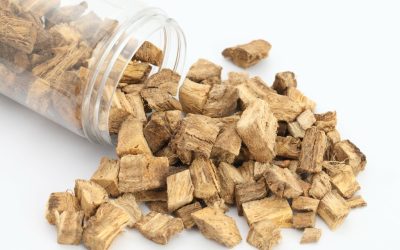How to Deal with Shame and Guilt in Recovery
Family-based interventions and family counseling not only benefit individuals in recovery but also contribute to the healing and growth of the entire family unit. One impactful therapeutic approach involves fostering self-compassion and reducing self-criticism. By encouraging individuals to treat themselves with kindness and understanding, therapists help to create a foundation of self-acceptance and forgiveness. This shift in perspective enables individuals to let go of the burdens of shame and guilt, allowing them to embrace their journey towards recovery with openness and vulnerability. To overcome these inhibitors and progress towards recovery, it’s essential to acknowledge and address the underlying sources of shame and guilt. By exploring the root causes of these emotions in a safe and supportive environment, individuals can begin to unravel the complex web of thoughts and feelings that have been holding them back.
How Exercise Supports Sobriety and Mental Health
- I’ve written out some general guidelines on the use of homework with highly self-critical and shame prone people.
- Be kind and understanding to yourself, as you would to a friend facing similar challenges.
Having positive relationships is crucial for those in recovery from addiction. Surrounding oneself with supportive individuals can significantly enhance emotional well-being and bolsters motivation to stay sober. These individuals provide encouragement, understanding, and empathy, which are vital in https://apkvan.com/hypertension-how-just-1-alcohol-drink-a-day-may/ combating feelings of shame and guilt. By acknowledging and navigating the complexities of shame experienced by women, individuals can find healing and resilience on their path to recovery.

Positive Affirmations
It helps individuals forgive themselves for past actions, reducing the weight of guilt and shame. Embracing one’s imperfections as part of the human experience fosters healing. Recognizing that mistakes don’t define a person allows for growth and empowerment.Furthermore, support systems play a crucial role in overcoming these negative emotions. Connections with understanding friends or support groups can provide a safe space to express feelings and share experiences. Such relationships encourage individuals to confront their guilt and guilt and shame in recovery shame constructively rather than retreating into isolation.
Understanding Guilt and Shame in Recovery
It can break up families, ruin relationships, break down self-confidence, and cause problems in all areas of life. When individuals are informed about how guilt, shame, and self-blame relate to addiction, they can develop healthier coping strategies. Learning that shame is more destructive than guilt—since shame involves feeling inherently bad rather than addressing specific actions—can motivate changes in self-perception. This education can be delivered through therapy, support groups, community workshops, or online resources. Differentiating these emotions guides treatment by focusing on targeted strategies. For guilt, encouraging acknowledgment of actions and fostering self-forgiveness helps in releasing these feelings.

Guilt tends to motivate a person to correct their behavior and make amends, leading to positive actions in recovery. alcoholism treatment It is connected to specific behaviors and creates awareness of actions taken against personal values. On the other hand, shame often leads to avoidance and can reinforce addictive behavior by fostering feelings of hopelessness.
This dynamic plays a crucial role in alleviating feelings of guilt and shame that often accompany recovery from substance dependency. A strong support system helps individuals process their emotions constructively, paving the way for healing. Feelings of guilt and shame are common yet powerful emotions experienced during addiction recovery. They often arise from past actions and self-perceptions that challenge one’s self-worth and can significantly impact the journey to sobriety. While guilt may motivate positive change, shame can hinder recovery by trapping individuals in cycles of self-blame and low self-esteem. This article aims to explore effective ways to address guilt and shame, providing guidance, strategies, and a deeper understanding for managing these emotions during recovery.
How to Stay Positive During Challenging Times in Recovery
This collective healing helps in diminishing isolation, a common struggle for those dealing with shame. Activities such as creative expressions or physical exercise can help process and alleviate feelings of shame, allowing for emotional release in a constructive way. Shame and substance abuse aren’t a good mix, though they commonly occur especially in early recovery. When someone feels shame, they may look for a way out to escape the feeling and go to something that masks the feelings to get away from the world for a while. Substance abuse is one way people achieve this, even if it’s for just a short time.
How to Manage Stress Without Turning to Substances
- But once you can free yourself from those feelings, you can get back on track to the good life that recovery brings.
- It is important to try to become more self-aware of your feelings and work on them.
- Common examples of these negative behaviors include lying, stealing, or neglecting responsibilities, which can irreparably damage relationships.
- Understanding the distinction between guilt and shame plays a vital role in recovery.
- Therapeutic techniques focus on recognizing and processing these feelings constructively.
This involves acknowledging past actions, understanding their impact, and apologizing, which can lead to emotional relief and support the recovery process. Developing a support network is also essential; it provides a safe space to share feelings and encourages personal growth. Guilt is the emotion that arises when someone feels they have done something wrong or failed to meet personal standards, often linked to specific actions or promises made during addiction.
